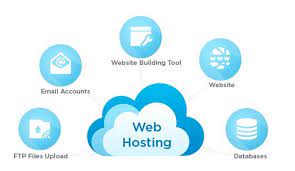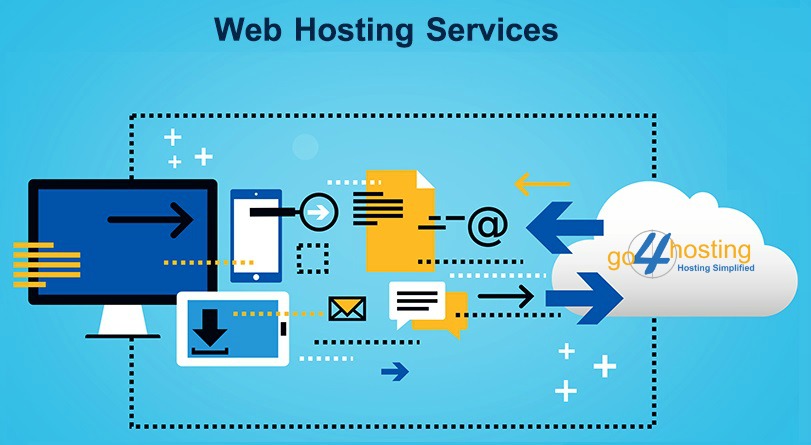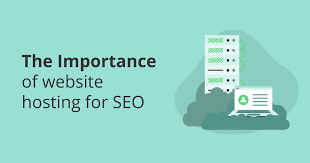Opting for the correct path when it comes to hosting services may be somewhat mindboggling. For example, you may conclude there are solid points which need to be made for utilizing VPS (Virtual Private Server) hosting, just the way there are benefits of utilizing cloud hosting services. As a matter of fact, these 2 choices are not in opposition, but rather, they are complementary to each other: one may install a VPS inside a cloud framework. Opting for such a cloud VPS hosting choice implies you can profit from these 2 unimaginably famous and helpful technological methodologies for a specific backend.
Cloud Hosting Options
A cloud server is a domain which is given to clients through various servers which are incorporated and together constitute the cloud. Basic hindrances which have kept individuals from embracing such a hosting arrangement are the absence of full information control and concerns regarding security. Nonetheless, there are numerous advantages of the cloud; evidently, many thought pioneers have already started believing that security is, indeed, one of them.
By utilizing a cloud server, a company is basically making use of the server farm of some supplier to manage the network, communicate with the clients, and deliver its matter to the people – from virtual server created inside a cloud-designed condition. CSP or a cloud specialist deals with the initial deployment, equipment, information security, and maintenance. They will vary in the measure of consent they offer to the clients to utilize their individual guidelines and configurations for the programs and servers. Sometimes, scaling may be carried out via a web-based interface.
Firms that make use of cloud innovation can scale extraordinarily. Scalability is important since it is not only about your capacity to develop, but also your association’s capacity to react spontaneously to the changes that are sought after – because your magnitude on an average will be dependably lower than the sum you are offering at peak periods.
Cloud VPS Specialities
The main contrast between cloud VPS hosting and other IaaS practices is that cloud VPS hosting has its roots in containerization, thus providing clients with numerous cloud benefits without totally virtualizing the hardware.
It must also be noted that VPS hosting of each and every kind is far more customizable and secure than shared hosting since the previous option has its own particular OS, and also its own particular server (the reason why root access is possible in a VPS situation). Whereas a customary VPS splits up the assets of a conventional server with firm restrictions, a cloud VPS hosting provides you devoted assets too.
Cloud VPS Uses
Here are some of the most basic use cases of cloud IaaS (infrastructure-as-a-service, as demonstrated by Enterprise Networking Planet and Cloud Academy:
Production migration: A major way in which cloud is utilized by companies is in the changeover of production from an on-location data center migration to cloud.
Disaster recovery/backup: Cloud hosting framework is composed in a way which makes it impenetrable to individual segment let-downs or to speed concerns of a solitary physical machine. Also, you essentially have as much storage space as you require with the cloud.
Redundancy: You may actualize 2 cloud virtual private servers in 2 topographical areas. At that point, you can utilize a load balancer for sending solicitations to every one of the 2 servers and render your framework significantly stronger.
Data manipulation/big data: You can oversee huge information significantly more productively inside the cloud hosting. Similarly, as with different operations, you don’t have to pay for the assets aside from when you have a vast dataset that you have to consider.
Peak-traffic bursting: At the point when an organization completes a considerable volume of online business exchanges, they will notice peak times when the traffic vacillates. Public cloud framework is intended for grand execution in light of generous rising and falling in the traffic. At the point when your movement goes down, you could conceivably backpedal to utilizing just your customary frameworks as well.
Proof of concept: Cloud makes it conceivable with a generally thin spending plan to organize proof of concept. The discoveries allow you to have more proof to impart to administration.
Web hosting: Frequently, organizations will choose to utilize IaaS for their company. They settle on that decision with the goal that heap adjusting is executed deliberately all through their biological community, so as to ensure auto-scale on request. Basically, having the capacity to scale without having to physically intercede is a huge pick up for organizations that need that procedure to be simple, without administration or support challenges.
Development and Testing: Just the way you will not have additional space for equipment to take into consideration blasting at peak periods, you will also not have space for a formative backend. Cloud servers can be conveyed as required, for example, just for 60 mins of testing.







 Today, companies are moving from ERP to cloud-based platforms. However, the safety of business data on cloud is a matter of debate. Other major concerns associated with cloud adoption are – its actual benefits and success rate.
Today, companies are moving from ERP to cloud-based platforms. However, the safety of business data on cloud is a matter of debate. Other major concerns associated with cloud adoption are – its actual benefits and success rate.



